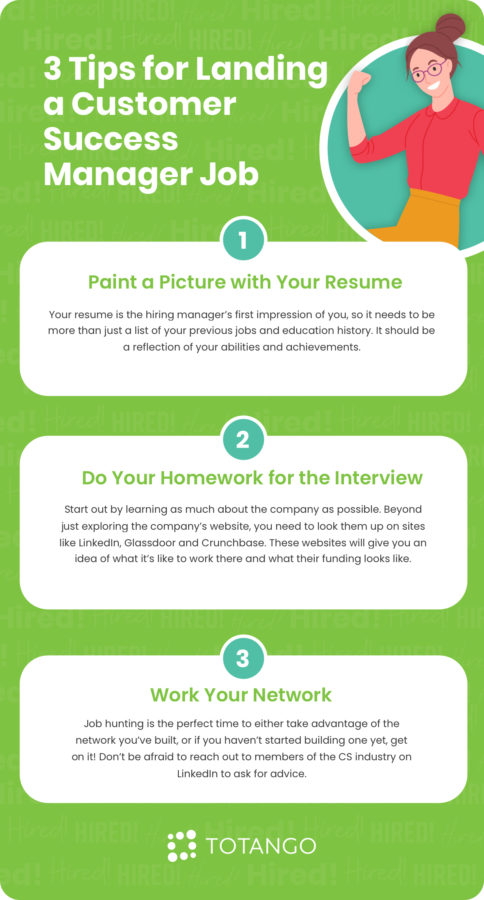Whether you’ve worked in the customer success industry for a while or you’ve recently decided that this is the career path for you, searching for Customer Success Manager jobs can be intimidating – especially if you don’t know where to start. In this article, we’ll take a look at some of the basic skills required to be successful as a CSM and break down three key areas to focus on to help you land that dream role.
Top Skills Needed for All Customer Success Manager Jobs
Customer Success Managers are extremely important because they serve as the face of the company for clients and play a key role in ensuring satisfying experiences with the brand. The interactions a customer has with their CSM can determine whether that customer renews or churns or even whether or not they become a loyal brand ambassador. In order to maintain and promote customer satisfaction and drive customer growth, there are several key skills that every CSM needs to master, including:
-
Communication: CSMs act as liaisons between the customer and others within the organization, therefore, they need to be good communicators who are able to facilitate the flow of accurate information between all key parties.
-
Emotional Intelligence:
A CSM often has to deal with clients who are frustrated or unhappy with the product or service they are receiving. In order to de-escalate tense situations, CSMs need to have a well-developed sense of empathy and compassion, making the customer feel heard while also facilitating a proper solution to the problem.
-
Critical Thinking:
CSMs have to be proactive problem-solvers. They need to be able to identify risks as well as possibilities early on and use strategic thinking skills to stay ahead of issues or take advantage of growth opportunities.
Three Tips for Landing a Customer Success Manager Job
When it comes to landing a CSM position, there are three main areas to focus on: your resume, the interview and networking. Here are some tips for how to rock each of these categories and win that dream job.
Paint a Picture with Your Resume
Your resume is the hiring manager’s first impression of you, so it needs to be more than just a list of your previous jobs and education history. It should be a reflection of your abilities and achievements. Highlight your customer-facing, critical thinking and communication skills, as well as examples of how you’ve worked cross-functionally with other departments. Bonus points if these examples include working with Product, Sales, Marketing or Engineering teams! Also, if possible, include any hard data you have that highlights the value and growth you achieved during your tenure in that role, such as past expansion quotas, retention goals, portfolio values and any other numeric attributes as well as how you achieved against them that will help paint a picture for the hiring manager of what a rock star you truly are.
Do Your Homework for the Interview
Once you get called in for an interview, it’s time to get down to business. Start out by learning as much about the company as possible. Beyond just exploring the company’s website, you need to look them up on sites like LinkedIn, Glassdoor and Crunchbase. These websites will give you an idea of what it’s like to work there and what their funding looks like. It’s also a good idea to research the company’s competitors to ensure you have a good handle on how they set themselves apart. If possible, sign up for a free trial and explore the product on your own to dive a little deeper.
After you’ve learned all you can about the company, then it’s time to turn your research inward. Start by identifying your goals. If you land this job, where do you want to go from there? Are you looking to move into a people management role, or maybe a CS operations role? Do you prefer a certain type of customer, such as mid-market or enterprise? It’s important to know what you’re looking for so you can assess the opportunity and the growth potential during the interview. Next up, write out the answers to common interview questions as well as your personal elevator pitch. Be sure to tailor your elevator pitch to be relevant for the role in question. For example, if the job description specifically mentions a need for understanding or experience with the full customer journey, you’ll want to make sure you include how you’ve worked with your current customers or in your current role through onboarding, adoption and retention. Finally, to be a good CSM, you need to have excellent critical thinking skills. CSMs are extremely strategic in nature, so it’s a good idea to identify a few examples of how your strategy or critical thinking helped a customer grow or overcome a roadblock.
Work your Network
Job hunting is the perfect time to either take advantage of the network you’ve built, or if you haven’t started building one yet, get on it! Don’t be afraid to reach out to members of the CS industry on LinkedIn to ask for advice. There are also tons of Slack channels, social media communities and blogs to help connect you to leaders in the space. You can also find plenty of resources – including Totango’s library of articles, guides and webinars – to help you gain a better understanding of the CS industry.
Finally, if you’re coming from a role outside of customer success but are interested in the industry, begin shaping your experience within your current role and company today to help you succeed tomorrow. For example, take on projects where you are more customer-facing, work with Product team members, CSMs and others in the space to help you gain experience.
At Totango, we’re always looking for enthusiastic and talented people to join our growing team. If you’re interested in a career in customer success and want to join an innovative, creative and hardworking team, check out our job listings! Or, if you’re already thriving in a CS career, but are looking for a way to better orchestrate customer experiences and optimize your customer journey, we can help with that too! Sign up for Totango for free today to get started!


